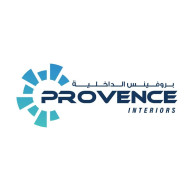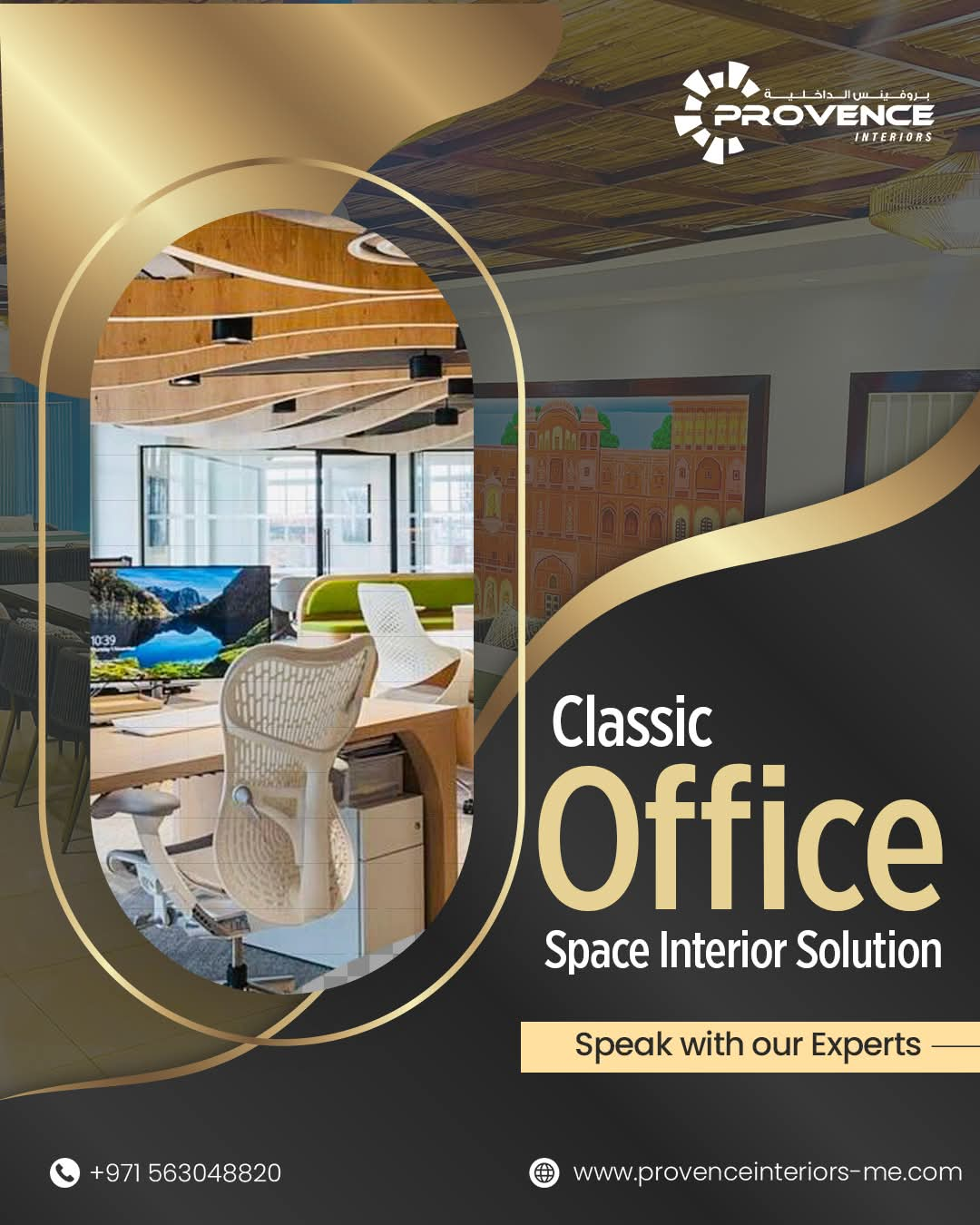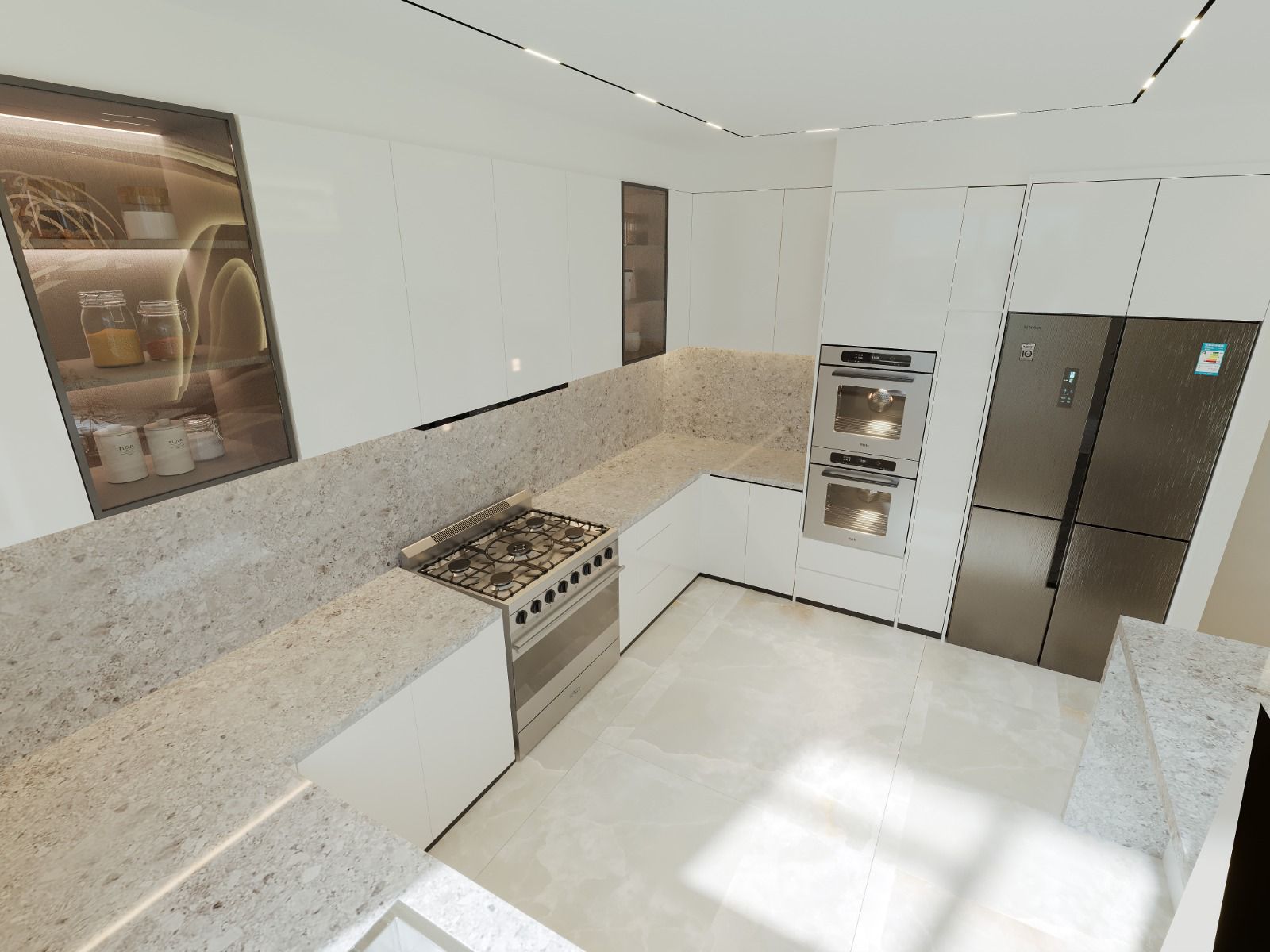Top 10 MEP Companies in Dubai
In the bustling city of Dubai, MEP (Mechanical, Electrical, and Plumbing) companies play a crucial role in ensuring that modern buildings and facilities run smoothly. These companies provide integrated services related to the mechanical, electrical, and plumbing infrastructure of buildings, which are essential for daily operations and maintaining comfort. With a focus on both residential and commercial buildings, MEP companies in Dubai have gained significant importance in the construction and maintenance sectors.
In this article, we will explore what MEP companies are, their availability in Dubai, and the expectations customers have when seeking MEP services in the city. From high-tech office spaces to luxurious residential complexes, MEP services are vital for ensuring the seamless operation of all building systems.
1. Al
Batal Al Saed Interior Decoration LLC
101, Shakhboot Building, Damascus Street, Opposite Emirates Building,
Al Qusais Industrial Area 1, Dubai, 00
2.
Provence Interiors
Office No 203, Arif And Bintoak Building, 20 B Street,
Near Karama Bus Station, Karama, Dubai, 114374
3.
Voltas Limited
Office 206, Green Tower, Baniyas Road,
Deira, Dubai, 12142
4.
ETA M&E Division
ETA Complex, Airport Road,
Al Garhoud, Dubai, 5239
5.
BK Gulf LLC
Al Quoz Industrial Area 3,
Near Al Khail Mall, Dubai, 262
6.
Al Shirawi
Electrical & Mechanical Engineering Company LLC
Al Shirawi Building, Al Quoz Industrial Area 3,
Sheikh Zayed Road, Dubai, 33539
7.
Emirates
Technical Associates (ETA)
Al Qusais Industrial Area 2,
Damascus Street, Dubai, 5239
8.
Thermo LLC
Airport Road,
Umm Ramool, Dubai, 1607
9.
Trans Gulf
Electro-Mechanical LLC
Al Quoz Industrial Area 4,
Dubai, UAE
10. United Masters Electromechanical LLC
Office 1101, Al Attar Business Centre,
Al Barsha 1, Dubai, 112156
MEP Companies: An Overview in Dubai
MEP (Mechanical, Electrical, and Plumbing) companies play a vital role in the construction industry by providing integrated services for building systems. MEP companies ensure that essential systems within a building, such as HVAC (heating, ventilation, air conditioning), electrical wiring, and plumbing, are designed, installed, and maintained to function efficiently and safely.
MEP stands for Mechanical, Electrical, and Plumbing. It refers to the essential systems in buildings responsible for maintaining comfort, safety, and functionality. MEP companies handle the engineering, design, and installation of these systems in commercial, residential, and industrial buildings.
Services Offered by MEP Companies in Dubai
MEP companies specialize in the design, installation, and maintenance of Mechanical, Electrical, and Plumbing systems for buildings. Here’s an overview of the key services provided by MEP companies:
1. Mechanical Services
- HVAC (Heating, Ventilation, and Air Conditioning): Installation, design, and maintenance of HVAC systems to ensure proper air conditioning, heating, and ventilation in buildings.
- Building Automation Systems: Integration of smart systems to control heating, cooling, ventilation, lighting, and security.
- Fire Protection Systems: Design and installation of fire suppression systems like sprinklers, smoke detectors, and alarms.
- Refrigeration Systems: Installation of cooling systems for industrial, commercial, and residential buildings.
- Energy Management Systems: Implementing solutions for energy conservation and efficiency.
2. Electrical Services
- Power Distribution: Design and installation of electrical infrastructure, including switchgear, transformers, and distribution panels.
- Lighting Systems: Design and installation of lighting systems for indoor and outdoor spaces.
- UPS (Uninterruptible Power Supply) Systems: Backup power systems for critical operations.
- Renewable Energy Systems: Installation of solar panels, wind turbines, and other sustainable energy systems.
- CCTV and Security Systems: Implementation of security systems such as video surveillance, access control, and fire alarms.
- Electrical Maintenance: Regular inspection and maintenance of electrical systems to ensure safety and reliability.
3. Plumbing Services
- Water Supply Systems: Installation and maintenance of water distribution systems, including pipes, pumps, and water treatment systems.
- Drainage Systems: Design and implementation of wastewater and stormwater drainage systems.
- Sewer Systems: Installation of sewage and waste management systems for residential and commercial buildings.
- Gas Piping Systems: Installation and maintenance of gas supply systems for heating and cooking purposes.
- Fire Suppression Systems: Installation of water-based fire sprinkler systems and other fire safety measures.
4. Sustainability Services
- LEED Certification: Consulting services for designing energy-efficient and eco-friendly buildings to achieve LEED certification.
- Energy Audits: Evaluation of energy consumption and recommendations for improving energy efficiency.
5. Commissioning and Maintenance
- System Commissioning: Testing and commissioning of MEP systems to ensure optimal performance.
- Preventive Maintenance: Scheduled maintenance services to avoid system breakdowns and ensure longevity of MEP systems.
- 24/7 Emergency Support: Round-the-clock support for resolving mechanical, electrical, and plumbing issues.
Importance of MEP Companies in Construction
MEP companies play a vital role in the construction and operation of modern buildings. Their contribution is fundamental to the overall functionality, safety, efficiency, and sustainability of construction projects. Here’s why MEP companies are essential:
1. Optimal Building Functionality
MEP systems ensure that a building functions as intended. HVAC systems regulate temperature and air quality, electrical systems power everything from lighting to machinery, and plumbing systems provide clean water and manage waste. Without MEP systems, a building would be incomplete and unusable.
2. Energy Efficiency and Sustainability
- MEP companies design systems to optimize energy usage, contributing to sustainability efforts. They integrate energy-efficient HVAC systems, renewable energy sources (like solar power), and smart building technologies to reduce energy consumption and carbon footprints.
- They help achieve certifications such as LEED (Leadership in Energy and Environmental Design), which recognize buildings that meet high environmental performance standards.
3. Safety and Compliance
- MEP systems are crucial for ensuring safety in buildings. Electrical systems are installed according to safety codes, while HVAC systems ensure proper ventilation to maintain healthy indoor air quality.
- Fire protection systems (like sprinklers and alarms) and gas piping systems are designed and installed by MEP experts to comply with safety regulations and prevent hazardous situations.
- Plumbing systems ensure that drinking water and sanitation systems meet regulatory standards to avoid contamination or water damage.
4. Cost Efficiency
- Proper Design and Planning: MEP companies contribute to cost savings by designing efficient systems that minimize waste and optimize the use of resources like energy and water.
- Long-Term Maintenance: By designing systems with maintenance and energy efficiency in mind, MEP companies help reduce long-term operational costs for building owners.
5. Seamless Integration of Building Systems
MEP companies ensure that mechanical, electrical, and plumbing systems work together seamlessly. They coordinate different disciplines to avoid conflicts during installation, prevent overlapping utilities, and maximize space utilization. This integration enhances the building's operational efficiency.
6. Customized Solutions for Building Needs
MEP companies design systems that are tailored to the specific needs of each building. For example, the HVAC system for a hospital would be different from that of a shopping mall due to different occupancy levels, air quality requirements, and equipment needs. Customized solutions ensure that each building functions optimally according to its purpose.
7. Support for Advanced Building Technologies
Modern buildings increasingly rely on technology like Building Management Systems (BMS), smart lighting, and automated controls. MEP companies are essential for implementing these advanced systems, allowing for automated temperature control, energy monitoring, and other functions that improve building efficiency.
8. Enhancing Occupant Comfort
Well-designed MEP systems are crucial for the comfort of building occupants. Proper ventilation, temperature control, lighting, and water systems ensure that the occupants have a pleasant experience in the building, whether it’s a home, office, or public space.
9. Critical Role in Green Building Initiatives
MEP companies contribute significantly to green building designs by implementing sustainable solutions such as rainwater harvesting, energy-efficient lighting, solar power systems, and eco-friendly HVAC systems. This not only improves environmental impact but also enhances the value of the property in the long run.
10. Commissioning and Post-Construction Services
MEP companies are not only involved in the design and installation of systems but also ensure that these systems are properly commissioned and maintained after the construction phase. They provide post-construction services such as system testing, troubleshooting, and regular maintenance to ensure the building remains fully operational.
Role of MEP Consultants in Dubai
MEP consultants play a critical role in the design, planning, and execution of building projects, ensuring the integration of mechanical, electrical, and plumbing systems. Their expertise is crucial for delivering efficient, safe, and functional buildings. Here’s an in-depth look at their responsibilities:
1. Design and Planning
- System Design: MEP consultants are responsible for designing the mechanical, electrical, and plumbing systems for buildings. They work closely with architects and engineers to ensure that these systems are integrated into the overall building design.
- Blueprint Development: MEP consultants create detailed blueprints that outline the placement and specifications of HVAC systems, electrical wiring, plumbing pipelines, fire protection systems, and more.
- Coordination with Architects: They work alongside architects and structural engineers to ensure that MEP systems fit seamlessly into the building’s structure without causing spatial or design conflicts.
- Sustainable Design: MEP consultants incorporate energy-efficient and eco-friendly designs, focusing on minimizing energy and water consumption. This is especially important for achieving green building certifications like LEED.
2. Technical Expertise
- Expertise in Regulations: MEP consultants ensure that all mechanical, electrical, and plumbing systems comply with local building codes, safety regulations, and industry standards. This helps avoid delays and fines during construction.
- Technology Integration: With the growing use of smart building technologies, MEP consultants are responsible for integrating automated systems, including Building Management Systems (BMS), smart lighting, and energy monitoring tools.
- System Optimization: Consultants ensure that the MEP systems are optimized for performance, which includes selecting the right equipment, determining proper sizing, and ensuring that systems work efficiently without overloading.
3. Cost Estimation and Budgeting
- Cost-effective Solutions: MEP consultants provide cost estimates for installing and operating mechanical, electrical, and plumbing systems. They focus on delivering cost-effective solutions that don’t compromise on performance or quality.
- Value Engineering: They conduct value engineering to reduce project costs without sacrificing the functionality or quality of MEP systems. This often includes evaluating different materials, equipment, or technologies that can lower costs.
4. Coordination with Contractors
- Consulting with Contractors: MEP consultants work closely with contractors to ensure the MEP systems are installed according to design specifications. This helps to avoid miscommunication and errors during construction.
- Installation Oversight: They oversee the installation process, ensuring that all systems are installed properly and according to plan. They provide technical guidance to contractors and address any issues that may arise during construction.
- Managing Workflow: They coordinate the sequence of MEP installations, making sure that plumbing, electrical, and HVAC systems are installed in the proper order and without interference between different contractors.
5. System Integration and Coordination
- Integrated System Design: MEP consultants ensure that mechanical, electrical, and plumbing systems are integrated seamlessly to avoid conflicts. For example, they ensure that HVAC ductwork does not interfere with electrical wiring or plumbing pipes.
- Space Utilization: Consultants focus on maximizing the use of available space by designing compact and efficient MEP systems that don’t occupy more space than necessary.
- Testing and Commissioning: After installation, MEP consultants perform system testing and commissioning to ensure that all systems work as intended. This is a critical phase to verify that all systems are functional and meet performance standards.
6. Sustainability and Energy Efficiency
- Energy Audits and Efficiency: MEP consultants conduct energy audits and recommend improvements to increase the energy efficiency of buildings. They focus on reducing energy consumption through the use of efficient HVAC systems, smart lighting, and renewable energy sources like solar panels.
- Sustainable Practices: They promote the use of sustainable practices such as rainwater harvesting, greywater recycling, and energy-saving electrical systems. Consultants also help building owners achieve green building certifications (LEED, BREEAM) by incorporating eco-friendly systems.
- Environmental Impact: MEP consultants work to reduce the environmental impact of the building by choosing materials and systems that minimize carbon emissions and energy consumption.
7. Problem-Solving and Troubleshooting
- Identifying and Resolving Issues: MEP consultants identify potential issues during the design or installation phases, such as conflicts between MEP systems and building architecture. They propose solutions to mitigate these problems.
- System Troubleshooting: In case of system failures or inefficiencies after installation, MEP consultants troubleshoot and recommend the necessary repairs or adjustments.
8. Post-Construction Support
- System Commissioning: MEP consultants play a vital role in commissioning, which involves verifying that all systems are installed correctly, meet design specifications, and function properly.
- Maintenance Plans: After construction is completed, MEP consultants provide maintenance plans to ensure the long-term operation of mechanical, electrical, and plumbing systems. They may also train the building’s operations staff on how to maintain the systems effectively.
9. Risk Management
- Ensuring Compliance: MEP consultants help mitigate risks by ensuring that the design and installation of MEP systems comply with all safety regulations, fire codes, and industry standards. Non-compliance can lead to costly penalties and dangerous situations.
- Fire Safety and Emergency Systems: MEP consultants ensure the integration of fire protection systems, emergency lighting, and other safety measures into the overall design, reducing risks in the case of emergencies.
10. Client Consultation and Support
- Client Advisory: MEP consultants advise clients on the most suitable MEP systems based on their building type, usage, and budget. They provide expert guidance on selecting the right equipment, materials, and design approaches.
- Post-Occupancy Support: Even after the building is occupied, MEP consultants may offer support for modifications, system upgrades, or troubleshooting as needed.
MEP Engineering and Design
MEP companies are involved in the engineering and design of systems that are optimized for the building's layout. Some key tasks include:
- 1. Load Calculations: Estimating energy requirements for heating, cooling, and electricity.
- 2. System Design: Designing systems to fit specific building needs, such as HVAC ductwork, electrical distribution, and plumbing layout.
- 3. Coordination: Ensuring that all systems work together efficiently.
Sustainability and Energy Efficiency
MEP companies also play a key role in making buildings environmentally friendly by integrating green technologies and energy-efficient designs. Services in this area include:
- 1. Designing energy-efficient HVAC systems.
- 2. Utilizing solar panels and renewable energy sources.
- 3. Installing smart lighting systems with sensors.
- 4. Rainwater harvesting and greywater recycling.
MEP Maintenance Services
Once the systems are installed, ongoing maintenance is essential to ensure the building operates efficiently. MEP companies provide preventive maintenance services for:
- 1. HVAC system cleaning and repairs.
- 2. Electrical system inspections.
- 3. Plumbing system maintenance.
Frequently Asked Questions About MEP Companies in Dubai
1. What does an MEP company do?
An MEP
company specializes in the design, installation, and maintenance of mechanical,
electrical, and plumbing systems in buildings. These systems are essential for
ensuring safety, comfort, and energy efficiency.
2. Why is MEP important in construction?
MEP
systems ensure the building is comfortable, safe, and functional. These systems
provide heating, cooling, lighting, power, water supply, and waste removal, all
of which are essential for any building's operation.
3. How does an MEP consultant differ from an MEP
contractor?
MEP
consultants design the systems and plan the layout, while MEP contractors are
responsible for installing these systems according to the consultant's plans.
Consultants focus on design and coordination, while contractors execute the
installation.
4. How do MEP companies ensure energy efficiency?
MEP
companies use energy-efficient designs and technologies such as smart HVAC
systems, LED lighting, energy-efficient motors, and renewable energy sources
like solar panels to reduce the building's energy consumption.
5. What are the typical costs of MEP services?
The cost
of MEP services depends on several factors such as the size of the building,
the complexity of the systems, and the level of customization required. A basic
system may cost less, while energy-efficient or green systems may have higher
upfront costs but offer long-term savings.
6. How long do MEP systems last?
With
proper maintenance, MEP systems can last for decades. HVAC systems typically
last 15-25 years, electrical systems can last up to 50 years, and plumbing
systems have a lifespan of 20-50 years depending on the materials used.
7. How do MEP companies handle complex projects?
MEP
companies utilize advanced software like BIM (Building Information Modeling) to
visualize and coordinate the placement of mechanical, electrical, and plumbing
systems. This helps avoid conflicts, improve accuracy, and streamline
installation.
8. What role do MEP companies play in green building
projects?
In green
building projects, MEP companies integrate sustainable solutions like renewable
energy, energy-efficient HVAC systems, and water-saving plumbing fixtures. They
help reduce the building's environmental impact and energy costs.
9. Do MEP companies offer retrofitting services?
Yes, MEP
companies often offer retrofitting services to upgrade existing systems with
more energy-efficient solutions. This can help older buildings reduce energy
consumption and meet modern building standards.
10. What certifications should a reliable MEP company
have?
A
reliable MEP company should have certifications such as ISO (International
Standards Organization) for quality management, LEED (Leadership in Energy and
Environmental Design) for sustainable building practices, and local licenses
for mechanical, electrical, and plumbing work.











